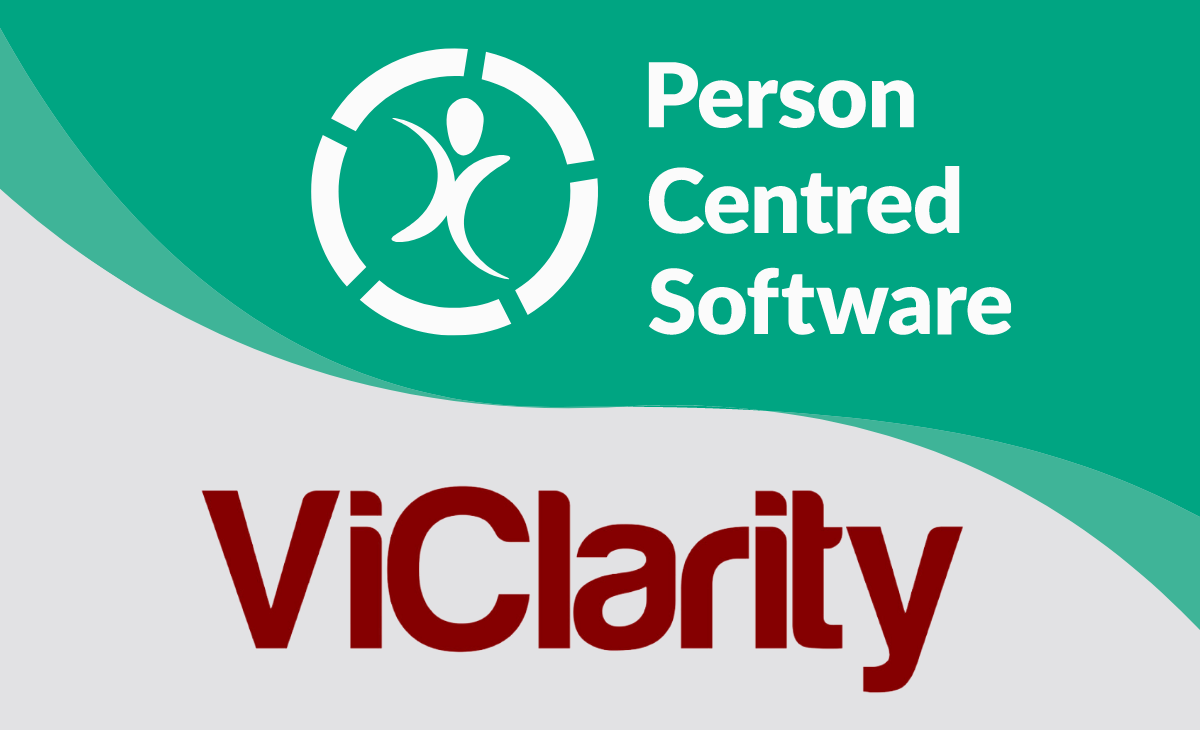What is changing, what is remaining, and what you need to know about the CQC single assessment framework
Later this year, and into 2024, the CQC will be introducing the new single assessment framework in phrases which will replace the existing key lines of enquiry (KLOEs). The new framework was rolled out in the South network beginning on 21st November and then to the rest of England by March 2024.
The main reasons behind the change are to make the process of evaluation simpler, so that the CQC can focus on the areas that are of the highest importance, as well as the need the better reflect how care is being delivered when taking the different types of services as well as a local area into account, and the recognition of the need for one framework that connects the CQC’s registration activity to their assessments of quality.
If you're interested in learning more, why not sign up for our webinar here.
Single assessment framework – what will be different?
Though the five key questions (safe, effective, caring, responsive and well-led) and the four-point ratings scale (outstanding, good, requires improvement and inadequate) will remain, the key lines of enquiry will be replaced by new quality statements.
Using these quality statements, the CQC aim to reduce the duplication that currently exists in the four current separate assessment frameworks, and instead allow them to focus on a specific topic in a specific area that will come under each question, which will link to the relevant regulations to make it easier for providers to understand what the CQC are looking for.
For example, the quality statements mentioned above will be framed as ‘we statements’, which will be written from a provider’s perspective to help them understand what the CQC is expecting from them. There will also be ‘I statements’ that are written from the perspective of a person being cared for, which will outline specifically what care providers should achieve when it comes to providing person-centred care.
The CQC also say that they will base their assessments of quality in all types of service and at all levels on this single assessment framework, which should create a linier, simple to follow process when it comes to compliance and the understanding of what constitutes outstanding care.
The six evidence categories – what to expect
The CQC have developed six categories for the evidence they collect for the single assessment framework which they will use to make judgments more structured, focused and consistent.
It’s important to know how the CQC will define the process of evidence gathering within these categories so you know how you can prepare. These categories are based on:
Did you know?
Through Person Centred Software's Digital Reception, care homes have the ability to gather feedback and reviews from family members based on their visit. Not only does this provide an invaluable source of information for any improvements that might be needed for people's experiences, but it helps to gather evidence for CQC inspections.
Statement details to consider
Rather than having the key lines of enquiry based on the five questions that the CQC ask, instead quality statements will be used in relation to whether a services provision of care is safe, effective, caring, responsive and well-led.
The CQC define these statements as the commitments that providers, commissioners and system leaders should live up to. These quality statements will be expressed as ‘we statements’ and are designed to act as examples of what is needed to deliver outstanding person-centred care.
The CQC will also be using ‘I statements’ as part of their assessment framework. These statements will reflect what people have said matters most to them when it comes to the process and quality of care provision.
Examples of ‘we statements’ and ‘I statements’ from each of the five key questions
The five key questions (safe, effective, caring, responsive and well-led) will be broken down into quality statements based on aspects of the questions:
Safe
- Learning culture
- Safe systems, pathways and transitions
- Safeguarding
- Involving people to manage risk
- Safe environments
- Safe and effective staffing
- Infection prevention and control
- Medicines optimisation
Effective
- Assessing needs
- Delivering evidence-based care treatment
- How staff, teams and services work together
- Supporting people to live healthier lives
- Monitoring and improving outcomes
- Consent to care and treatment
Caring
- Kindness, compassion and dignity
- Treating people as individuals
- Independence, choice and control
- Responding to people’s immediate needs
- Workforce wellbeing and enablement
Responsive
- Person-centred care
- Care provision, integration and continuity
- Providing information
- Listening to and involving people
- Equity in access
- Equity in experiences and outcomes
- Planning for the future
Well-led
- Shared direction and culture
- Capable, compassionate and inclusive leaders
- Freedom to speak up
- Workforce equality, diversity and inclusion
- Governance, management and sustainability
- Partnerships and communities
- Learning, improvement and innovation
- Environmental sustainability – sustainable development
Below are examples of the ‘we statements’ and ‘I statements’ taken from one of the aspects of the key questions. There is only one from each listed, but the CQC will be assessing care homes based on more than those listed below.
Safe - Learning culture
We statement: We have a proactive and positive culture of safety based on openness and honesty, in which concerns about safety are listening to, safety events are investigated and reported thoroughly, and lessons are learned to continually identify and embed good practices.
I statements:
- I feel safe and am supported to understand and manage any risks
- I can get information and advice about my health, care and support and how I can be.
Effective – Monitoring and improving outcomes
We statement: We routinely monitor people’s care and treatment to continuously improve it. We ensure that outcomes are positive and consistent, and that they meet both clinical expectations and the expectations of the people themselves
I statements:
- I have care and support that is coordinated, and everyone works well together and with me
- I have care and support that enables me to live as I want to, seeing me as a unique person with skills, strength and goals
- I am empowered to get the care, support and treatment that I need and want
Caring – Independence, choice and control
We statement: We promote people’s independence, so they know their rights and have choice and control over their own care, treatment and wellbeing
I statements:
- I am treated with respect and dignity
- I have care and support that enables me to live as I want to, seeing me as a unique person with skills, strengths and personal goals
- I am supported to manage my health in a way that makes sense to me
- I am in control of planning my care and support. If I need help with this, people who know and care about me are involved
- I can keep in touch and meet up with people who are Important to me, including family, friends and people who share my interests, identity and culture
Responsive – person-centred care
We statement: We make sure people are at the centre of their care and treatment choices and we decide, in partnership with them, how to respond to any relevant changes in their needs.
I statements:
- I have care and support that is coordinated, and everyone works well together and with me
- I am in control of planning my care and support. If I need help with this, people who know and care about me are involved
- I am supported to plan ahead for important changes in my life that I can anticipate
- I know how to access my health and care records and decide which personal information can be shared with other people, including my family, care staff, school or college
Well-led – Governance, management and sustainability
We statement: We have clear responsibilities, roles, systems of accountability and good governance. We use these to manage and deliver good quality, sustainable care, treatment and support. We act on the best information about risk, performance and outcomes, and we share this securely with others when appropriate.
How to remain compliant with the CQC’s new single assessment framework
The CQC have said that they want to be clearer with providers and the public about how they use the information they have about care in a service or local area. Therefore, they state that for each quality statement, they will state which evidence they will need to collect and look at.
This will depend on certain variables, such as whether a care home has recently opened or whether it has been operating for a long time among other levels and variables.
But the one fact underpinning the phasing out of the key lines of enquiry and the adoption of the single assessment framework is the need for more straightforward, easy-to-understand regulations so that care homes can know exactly what is expected from them in the provision of care and the evidencing of care. They are also using the single assessment framework to clearly define best practice from an operational point of view and a holistic care approach, to ensure the balance between the administration and human element is always maintained, with one never outweighing the other.
The best way to ensure both challenges are met and exceeded to achieve an outstanding CQC rating is to invest in Person Centred Software’s Connected Care Platform, which offers care providers solutions to the most challenging aspects of health and social care, such as medication management, wellness and activities, care planning and care home operations.
The above quality statements relating to the key questions were just one of a multitude of different statements that will need to be understood and complied with, which may sound daunting, but the all-in-one, easy-to-use software available from Person Centred Software ensures that every aspect of care provision, from care notes to wellbeing to medication management and everything in between, is well-placed to be improved, streamlined and evidenced to the highest standard possible.
Click here to learn more about the CQC KLOES.
With Person Centred Software’s Connected Care Platform, you can offer much more than just a service that is compliant with regulations, you can provide outstanding, person-centred care.
Stay compliant with the new CQC single assessment framework with Person Centred Software by clicking the button below to find out how our products can help you.







.webp?width=80&height=80&name=HTD%20Awards%202023%20Badge%20(4).webp)














